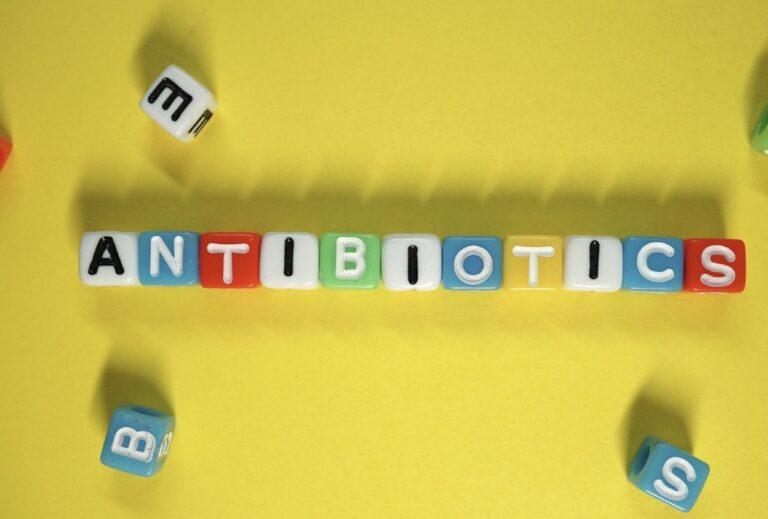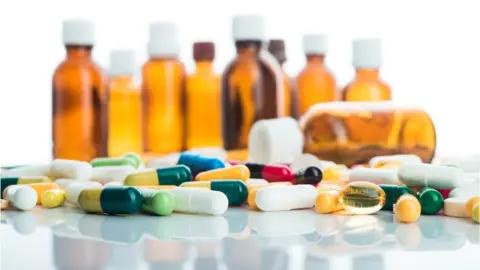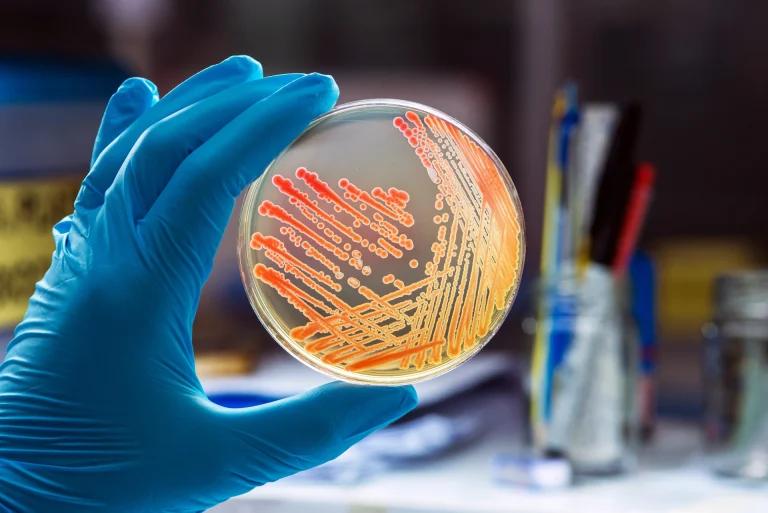
Antibiotics are vital for the treatment of bacterial infections causing pneumonia, meningitis and sepsis. Penicillin, the first antibiotic treatment, was discovered in 1928 by Alexander Fleming to help defend against the spread of infectious diseases. Ever since, there has been an acknowledgement of resistance alongside the discovery of new antibiotics. Germs, microbes and pathogens will always look for ways to survive and resist new drugs. The first case of methicillin-resistant Staphylococcus aureus (MRSA) was actually identified as early as the 1960s, in the United Kingdom and in the United States.
What is antibiotic resistance?
Antibiotic resistance is a major threat to individuals and public health. It is sometimes described as a silent pandemic. Taking antibiotics when not needed puts everyone at risk of developing infections that cannot be easily treated with antibiotics. Antibiotic resistance has increased because of how we make use of antibiotics, the misuse and overuse of antibiotics, as well as poor infection prevention and control. Steps can be taken at all levels of society to reduce the impact and limit the spread of resistance.
The United States Department of Agriculture (USDA) and the Food and Drug Administration (FDA) collect data on antibiotic use for human health. What they have found is quite alarming and isn’t just relevant to the U.S. It’s as important in the U.K.
The development of antibiotic resistance is one of the biggest public health challenges of our time. Each year in the U.S., at least 2.8 million people get an antibiotic-resistant infection and more than 35,000 people die. Fighting this threat is a public health priority that requires a global approach across all sectors.
What is the difference between antibiotic-resistant and antibiotic-sensitive?
Antibiotic-resistant bacteria are those that are able to survive the effects of an antibiotic. They have acquired a mutation in their genetic structure that allows them to resist the drug that is designed to kill any bacteria it comes in contact with. On the other hand, antibiotic-sensitive bacteria die when exposed to antibiotics. The difference between the two types can be a matter of life or death when it comes to treating certain infections caused by these bacteria. It is important for healthcare professionals to determine which kind of bacteria they are dealing with before they prescribe antibiotics, so that they can give the patient an effective treatment plan.
How does antibiotic resistance happen?
More and more germs are sharing their resistance with one another, increasing the number of multidrug-resistant bacteria and increasing our susceptibility to microorganisms. The most common mechanism of resistance is horizontal gene transfer, the transferring of plasmids carrying antibiotic resistance genes between bacteria of the same or different species via conjugation.
Bacteria can also gain resistance through transduction, as in the bacteriophage-mediated transfer of tetracycline resistance genes between strains of S. pyogenes or through gene transfer agents, which are particles produced by the host cell that resemble bacteriophage structures and are capable of transferring DNA.
There are bacterial enzymes that can inactivate antibiotics. One example is β-lactamase which destroys the active component of penicillins. Bacteria that produce extended-spectrum β-lactamases (ESBL) have become a major problem. They can degrade a wide spectrum of β-lactam antibiotics, sometimes this also includes the last-resort drugs available for infections.
Antibacterial products sold for hygienic or cleaning purposes may also contribute to the problem. They may reduce the development of natural immunity to environmental antigens in both children and adults.
What is antibiotic stewardship?
Antibiotic stewardship is an important part of modern healthcare. It involves careful and prudent prescribing, dispensing, use and monitoring of antibiotics by healthcare professionals, in order to reduce the risk of preventing drug-resistant infections. Not only does this help ensure that people receive the most appropriate care as well as maximise the efficiency of medical treatments, but it also helps limit unnecessary adverse effects patients may experience when taking specific antibiotic medications. Strict compliance with current clinical guidelines for prescribing and using antibiotics is important for any healthcare provider or facility that wants to practice effective antibiotic stewardship. This ensures that bacteria do not develop resistance to commonly used antibiotics over time by minimising their inappropriate use and spread. Patients can ensure they are getting the best possible care by being sure their medical teams engage in proper antibiotic stewardship practices whenever needed.
What to do about antibiotic resistance?
Addressing antibiotic resistance is a high priority for policymakers at the WHO (World Health Organisation). A global action plan on antimicrobial resistance (AMR), including antibiotic resistance was passed at the World Health Assembly in May 2015. The global action plan aims to ensure the prevention and treatment of drug-resistant bacterial infections with safe and effective antibiotic use.
Clinical misuse in healthcare settings is a leading cause of increased antimicrobial resistance. Studies done by the CDC (Centers for disease control and prevention) showed that the indication for treatment with antibiotics, choice of the agent used and duration of therapy were incorrect in up to 50% of the cases studied.
Incorrect prescribing of antibiotics has questionable therapeutic benefits and exposes patients to potential complications of antibiotic therapy. Subinhibitory and subtherapeutic antibiotic concentrations can increase the development of antibiotic resistance by supporting genetic alterations, such as changes in gene expression, HGT and mutagenesis.
To prevent and control the spread of antibiotic resistance, the healthcare industry can invest in research and development of new antibiotics, vaccines, diagnostics and other tools. While there are some new antibiotics in development, none of them are expected to be effective against the most dangerous forms of antibiotic-resistant bacteria.
Antibiotics don’t work for:
- Colds – these are caused by viral infections, so antibiotics are not effective. Recent strategies have focused on reducing unnecessary antibiotic prescribing in this setting. Simple interventions, such as written information explaining the futility of antibiotics for common infections, such as upper respiratory tract infections, have been shown to reduce antibiotic prescribing
- Flu – antibiotics are often unlikely to speed up the healing process and can cause side effects. The more antibiotics are used to treat trivial conditions, the more likely they are to become ineffective in treating more serious conditions
- Most coughs and sore throats are self-limiting and can be treated with over-the-counter cough mixtures from your Chemist. If you do have a persistent cough seek further medical advice. Call your GP or dial the NHS on 111
- Most diarrhoea can be treated with over-the-counter medication and temporary changes in your dietary intake. You’ll find that diarrhoea is generally caused by something you’ve eaten and tends to settle within 48 hours. If you find that after treatment and if it is persisting for longer than 48 hours, give your GP a call or dial the NHS on 111
- Most cystitis can be treated with over-the-counter remedies. Seek further medical advice if you have blood in your urine or lower back pain. A point to note, a study found that recreational swimming might be a risk factor for urinary tract infections with E. coli (escherichia coli) or Klebsiella pneumoniae. More studies of this type are needed to estimate the role of contaminated water in the transmission of resistant bacteria
What you can do about antibiotic resistance?
If you’re feeling unwell, there are a few things to do before heading to your GP to request antibiotics. These include:
- Use a thermometer to measure your temperature every few hours
- Take over-the-counter treatment options such as paracetamol and ibuprofen, every few hours
- Sleep and rest, to allow your body to recuperate
- Take lots of hot and cold drinks to rehydrate
- Keep an eye on your symptoms and how you feel, if they get progressively worse or last for several days, speak to your Pharmacist
- If you are taking antibiotics, make sure you finish the course of treatment and only take antibiotics prescribed for you and not for anyone else
How does antibiotic resistance impact the NHS?
Antibiotic resistance is a rapidly growing problem that has a significant impact on the NHS, particularly in terms of hospital stays and healthcare costs. As more bacteria build up increased levels of antibiotic resistance, hospital stays become longer, as antibiotics no longer work effectively against these germs. In addition, a substantial amount of money becomes allocated to healthcare costs, as resources are needed to help deal with health problems stemming from antibiotic-resistant bacteria. If we do not take preventative measures now, this public health threat will only increase exponentially and lead to more hospital stays and greater healthcare costs for the NHS.
Sources
Medical Disclaimer
NowPatient has taken all reasonable steps to ensure that all material is factually accurate, complete, and current. However, the knowledge and experience of a qualified healthcare professional should always be sought after instead of using the information on this page. Before taking any drug, you should always speak to your doctor or another qualified healthcare provider.
The information provided here about medications is subject to change and is not meant to include all uses, precautions, warnings, directions, drug interactions, allergic reactions, or negative effects. The absence of warnings or other information for a particular medication does not imply that the medication or medication combination is appropriate for all patients or for all possible purposes.








